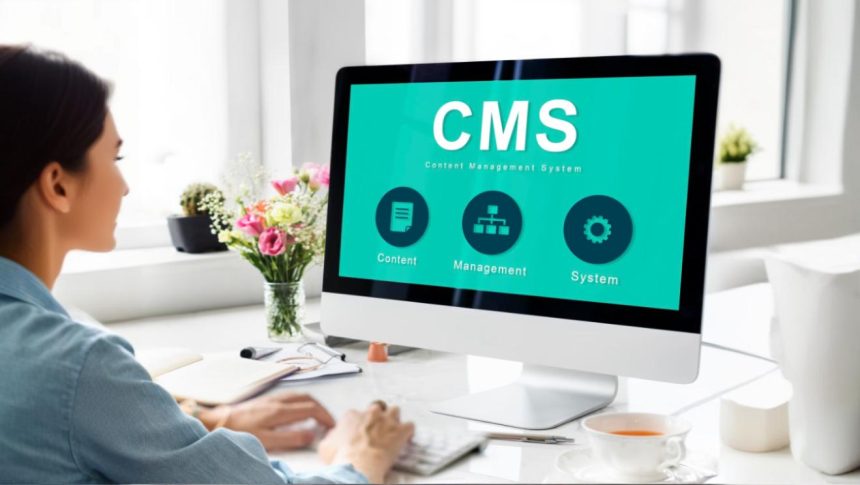Your online platform is the online visage of your brand. It has an impact on the perception of visitors to your business. A Content Management System or CMS dictates the way your site works. The appropriate system makes your site simple to control and expand. The inappropriate selection presents problems with customization, performance and sustainability. Contemporary business requires flexibility and control of online platforms. A Content Management System must be able to facilitate publishing, design and scalability. The choice of the right one is a very important decision for any business owner. It affects conversions, search rankings and user experience. A good system also eases the work of your team. Web designer Dubai usually emphasizes the CMS decisions. They are aware that design is only a part of a puzzle. Making the right decisions guarantees improved performance of your site and readers. In this article, we will find out the importance of selecting the right CMS.
Learning What a CMS Does
A Content Management System assists you in developing and maintaining websites. It enables the user to create, edit and manage digital content. It makes technical work easier for non-developers. It allows one to post media, update blogs and edit pages without coding. Drag and drop is available on many platforms. Such tools are time-saving and error-reducing. It divides the design and the content. This speeds up and streamlines the updating of websites. It also assists businesses to be consistent on pages. Extensions and plugins add capabilities. They allow you to add forms, galleries or payment options without much effort. It increases collaboration through the ability of different users to collaborate. The use of role-based access controls increases security. Scaling of the site is made easier with a CMS. It scales up as your business requires.
Why CMS Choice Impacts Business Success
The CMS you choose impacts your website’s long-term success. A strong system ensures flexibility and control. Businesses must consider usability and scalability. A Content Management System should grow with your brand’s goals. Poor CMS selection limits functionality. It may also restrict future design improvements. It supports better SEO features. Search-friendly websites attract more visitors. Smooth publishing tools help maintain consistency. Customization options align with your branding needs. It also influences site performance. Faster sites keep visitors engaged. A poor-performing system can push users away. Your CMS choice affects both visitors and business outcomes. A thoughtful decision helps avoid costly migrations. The right platform sets a foundation for online growth and success.
The Role of CMS in User Experience
User experience depends heavily on the CMS powering a site. A reliable CMS ensures smooth navigation. It delivers consistent layouts and a responsive design. Visitors appreciate fast-loading pages and easy access to content. It should allow for intuitive design updates. Clear menus improve navigation and engagement. Consistent branding builds trust with visitors. Multimedia integration enhances visual appeal. It should support interactive features. This encourages longer visits and better conversions. Optimized templates create a professional appearance. Accessibility features expand audience reach. Personalization tools improve user satisfaction. Each feature contributes to a positive visitor journey. A strong CMS supports your audience at every step. Good user experiences keep visitors coming back. Poor experiences lead to higher bounce rates. It should priorities delivering smooth and memorable interactions.
CMS and SEO Performance
SEO success depends on the CMS you choose. Many platforms offer built-in optimization tools. They allow you to edit meta titles and descriptions. Clean URL structures improve search visibility. Mobile-friendly templates boost rankings. Fast load speeds enhance search performance. Content organization tools improve index ability. It should generate XML sitemaps automatically. This supports better search engine crawling. Integrations with analytics tools help track results. SEO plugins extend optimization options further. Schema markup support improves visibility in results. A strong CMS ensures proper header hierarchy. This strengthens on-page optimization. Image optimization features reduce load times. Canonical tags prevent duplicate content issues. Secure connections with SSL improve trust.
Why Scalability Matters in CMS Selection
Scalability ensures your CMS grows with your business. A scalable system supports expanding content needs. It handles higher traffic without performance loss. Businesses must prepare for growth. A rigid CMS creates future limitations. Adding new pages should be simple. Integrating new features must be seamless. It prevents costly platform switches. E-commerce growth requires strong scalability. Content-heavy sites also need this flexibility. Scalable systems manage both small and large projects. They adapt to audience demands. Multi-language support enables global reach. Cloud hosting options enhance flexibility. Plugins and integrations should scale smoothly. Performance must remain steady under high loads.
Security and CMS Platforms
Security is critical when choosing a CMS. Weak platforms expose websites to threats. It protects sensitive customer data. Built-in firewalls reduce risk. Regular updates patch vulnerabilities. Secure plugins minimize potential attacks. Role-based permissions restrict access. Encrypted connections safeguard information. Security-focused CMS providers offer reliable support. E-commerce sites require strong protections. Customer trust depends on secure platforms. Poor CMS security damages brand reputation. Recovery from hacks can be costly. It should prioritize safety by design. Businesses must evaluate security before choosing.
CMS for Websites and Business Goals
Choosing a CMS for websites requires aligning it with business goals. Each business has unique objectives. Some focus on e-commerce. Others prioritize blogging or content marketing. It should match these priorities. Features must support core business needs. Marketing-driven sites need strong SEO tools. Sales-focused sites require payment integrations. Service businesses need booking systems. It should enable these functions easily. Growth strategies also matter. It supports expansion. Branding goals influence design needs. It should provide customization flexibility. It should also support team collaboration. Clear workflows align with business goals. Proper CMS selection connects technology with strategy. This ensures your site becomes a growth tool.
Best CMS Platform for Long-Term Growth
The selection of the most appropriate CMS platform promotes business development in the long run. Numerous platforms have the same features. The relevant decision will be based on particular requirements. WordPress is dynamic and popular. Shopify is the best in e-commerce solutions. Drupal has strength in complicated sites. Joomla is easy to use yet functional. There are specific advantages of each platform. Businesses have to judge based on scalability. Considerations on the budget also count. Support and maintenance have an impact on total cost. The community enhances usability. Regular updates make it reliable. It is prudent to select on the basis of growth plans. The most excellent CMS is the one that is flexible and innovative. It must deal with new technologies. A stable platform is a key to long-term success. Future-oriented is the best CMS platform. It keeps enterprises competitive. The time spent on selection is worthwhile. The judicious selection would lock in the sustainable growth of a website.
Conclusion
Selecting an appropriate CMS is the key to the success of a site. It has an impact on user experience, SEO, scalability, and security. An effective system promotes business development and flexibility. Inappropriate decisions have restrictions and future issues. Businesses are required to match CMS features with objectives. It must be user-friendly, scalable and flexible. The security must not be compromised.







